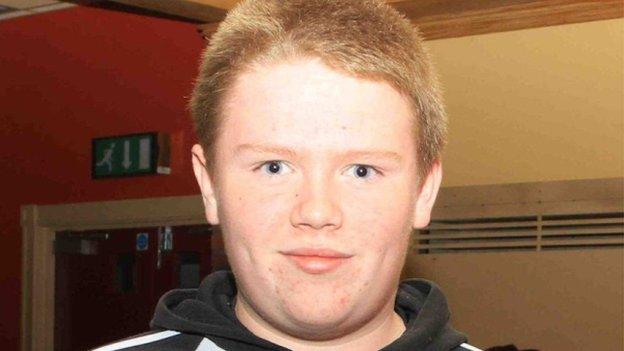Mark Zuckerberg asked about Ronan Hughes case
- Published
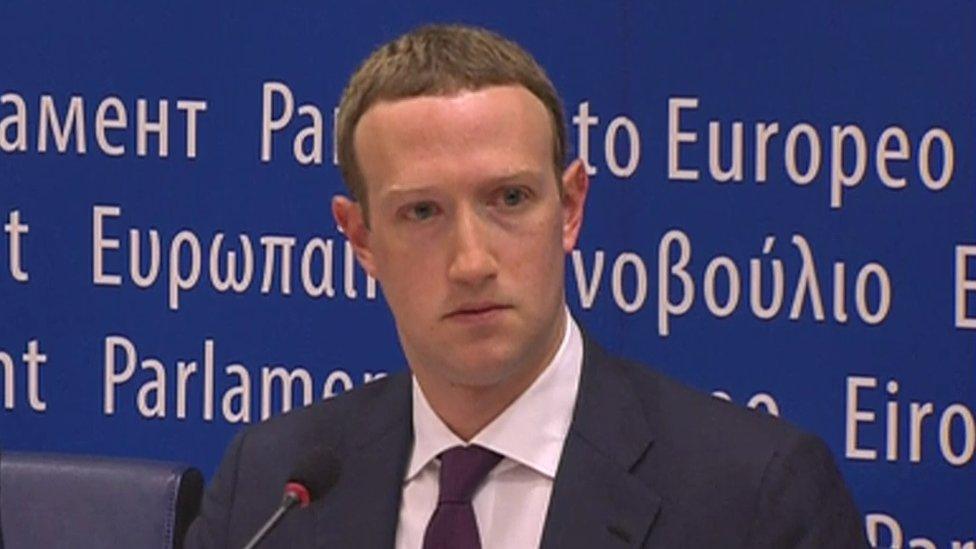
Mr Zuckerberg is appearing before European Parliament MEPs
Facebook's founder has been asked about the suicide of a Northern Ireland schoolboy during questioning from MEPs about information security and privacy.
Mark Zuckerberg was told of the case of Ronan Hughes, who took his own life in 2015 after being blackmailed into sharing intimate photos on Facebook.
A DUP MEP asked him what he was doing to tackle "false Facebook accounts".
Mr Zuckerberg did not address the case specifically but said his firm removed "580m fake accounts" earlier this year.
Facebook's chief executive was appearing before European Parliament MEPs to give evidence about the Cambridge Analytica data scandal.
Democratic Unionist Party MEP Diane Dodds raised the case of Ronan Hughes, a 17-year-old schoolboy from Coalisland, County Tyrone, who died in June 2015.
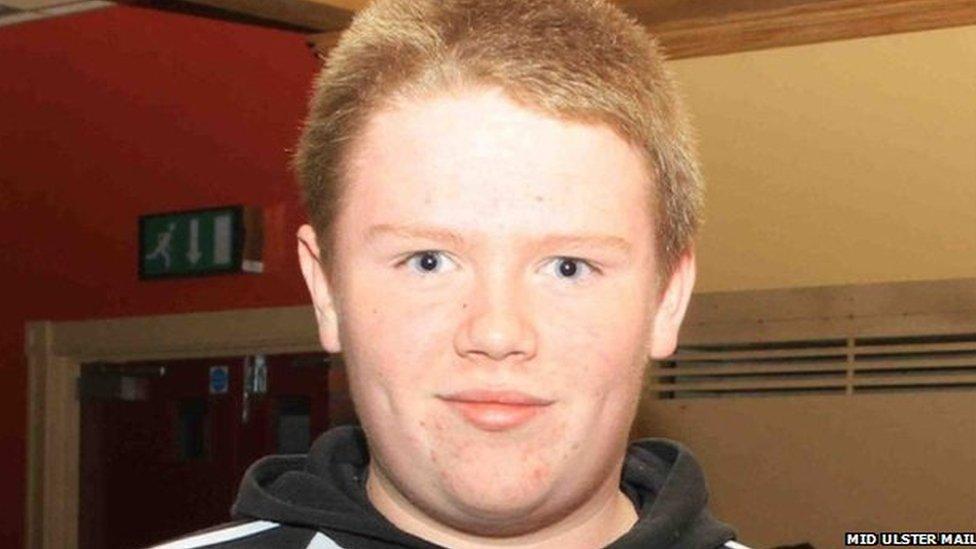
Ronan Hughes took his own life after being blackmailed on Facebook
Mrs Dodds said: "In a few week's time, a family within my constituency will mark the third anniversary of the loss of their son to online bullying."
She explained to Mr Zuckerberg that Ronan Hughes was "the victim of a false Facebook account from online bullies who persuaded him to send an intimate photograph of himself and then asked for £,3,000".
She said it was "only one example of the rise of false accounts within Facebook".
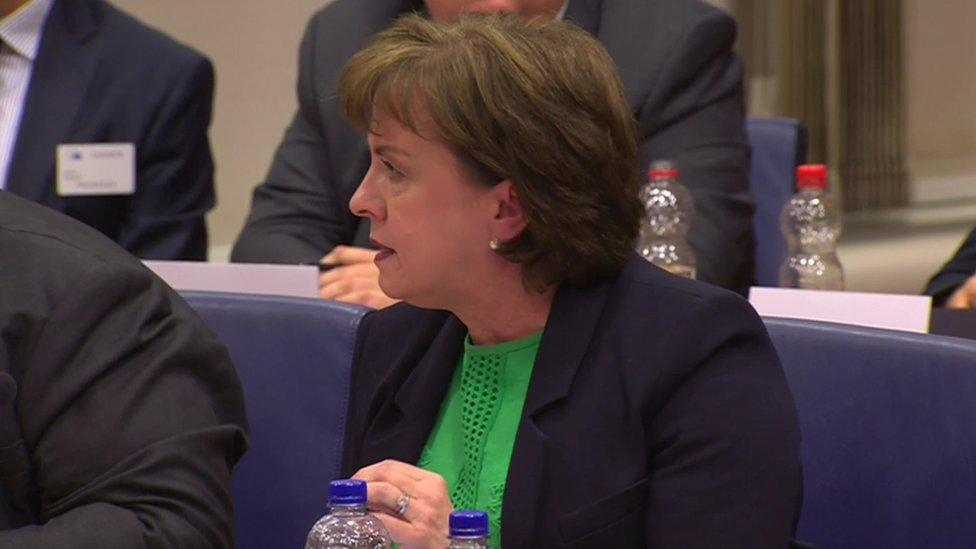
Diane Dodds asked Facebook's founder about his efforts to keep young people safe onine
Mr Zuckerberg listened to a range of questions from several MEPs before beginning to address the concerns they raised in a general address.
"Bullying, terror, violence - all this content has no place on our services," he said.
"So we built AI (artificial intelligence) tools to determine if someone was thinking about harm or suicide."
The Facebook founder said his company was investing in new technology and extra staff in order to be "more proactive" in identifying harmful content.
'Initial filter'
He said the firm had developed systems to "identify fake accounts as they are being registered".
"We just released a transparency report which said that we took down - I think it was in the first quarter of this year - about 580m fake accounts, the vast majority within minutes of being registered, as our systems are able to identify that well.
"We also have a significant operation which is working on identifying fake accounts that get through that initial filter, so we can identify them all.
"Once they are in the Facebook community, our best estimate today, I think, is that it's a single digit per cent of the accounts, but we're constantly working on improving our tools to be able to identify that, and that's extremely important as well."
Ronan Hughes was targeted by a Romanian man who tricked him into sharing photos and then demanded a ransom of £3,000.
When the ransom was not paid, some of the pictures were sent to Ronan's friends and just hours later, the schoolboy killed himself.
The man responsible for the scam, Iulian Enache, later pleaded guilty in a Romanian court to blackmail and producing and distributing indecent images of a child.
Last August, Enache was was given a four-year jail term.
- Published22 May 2018
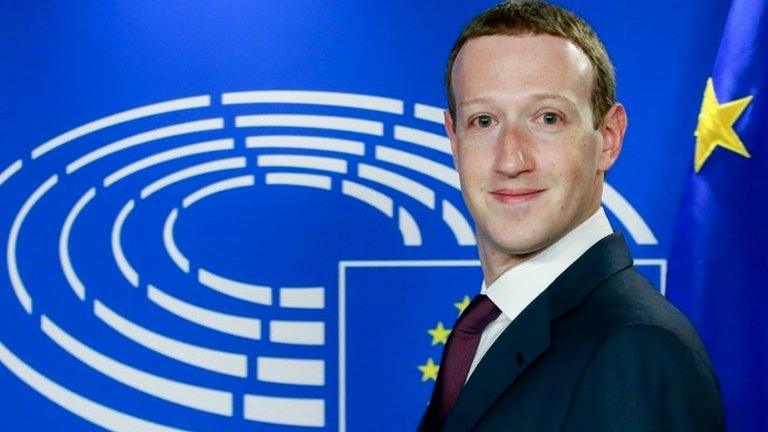
- Published30 August 2017
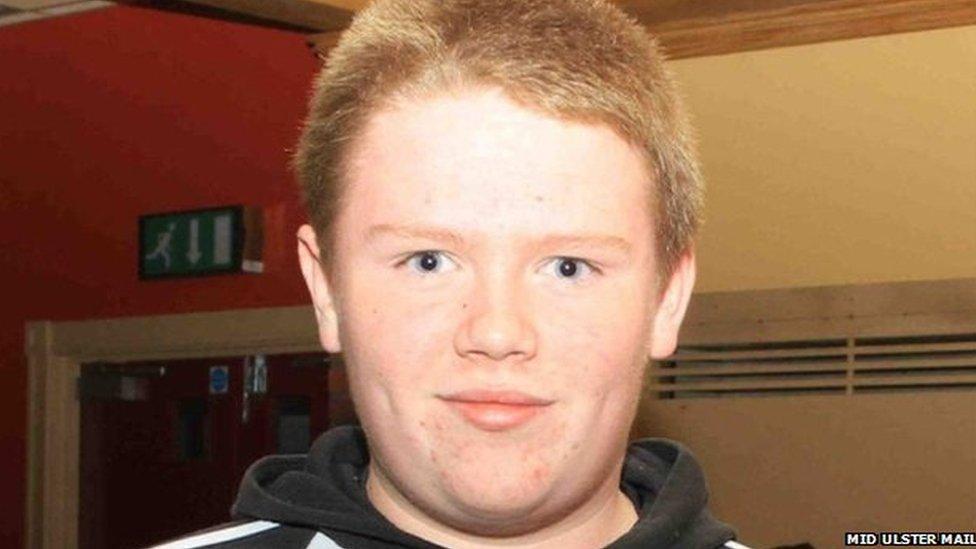
- Published8 June 2015
